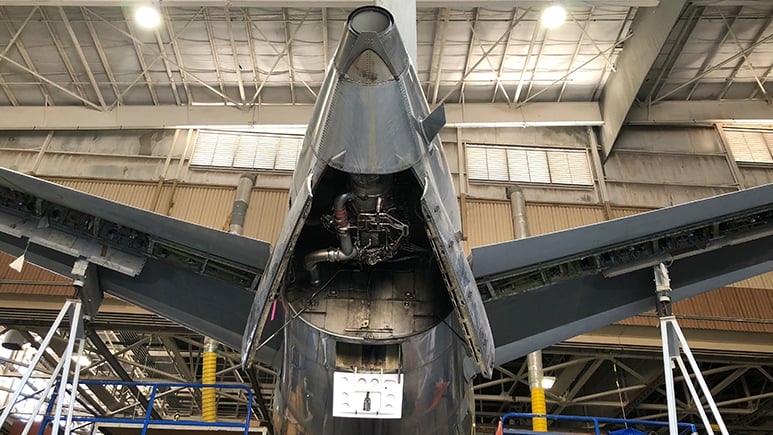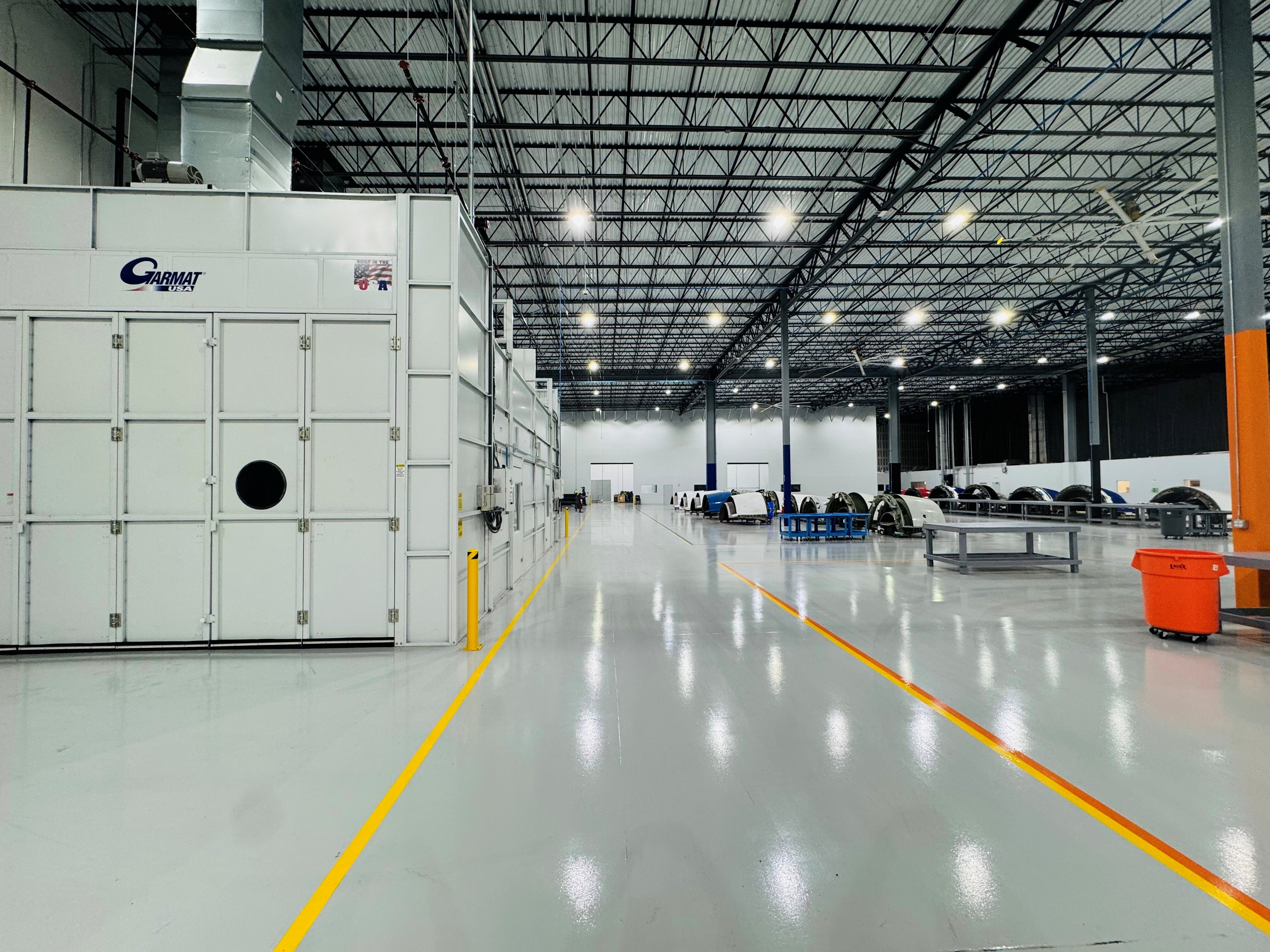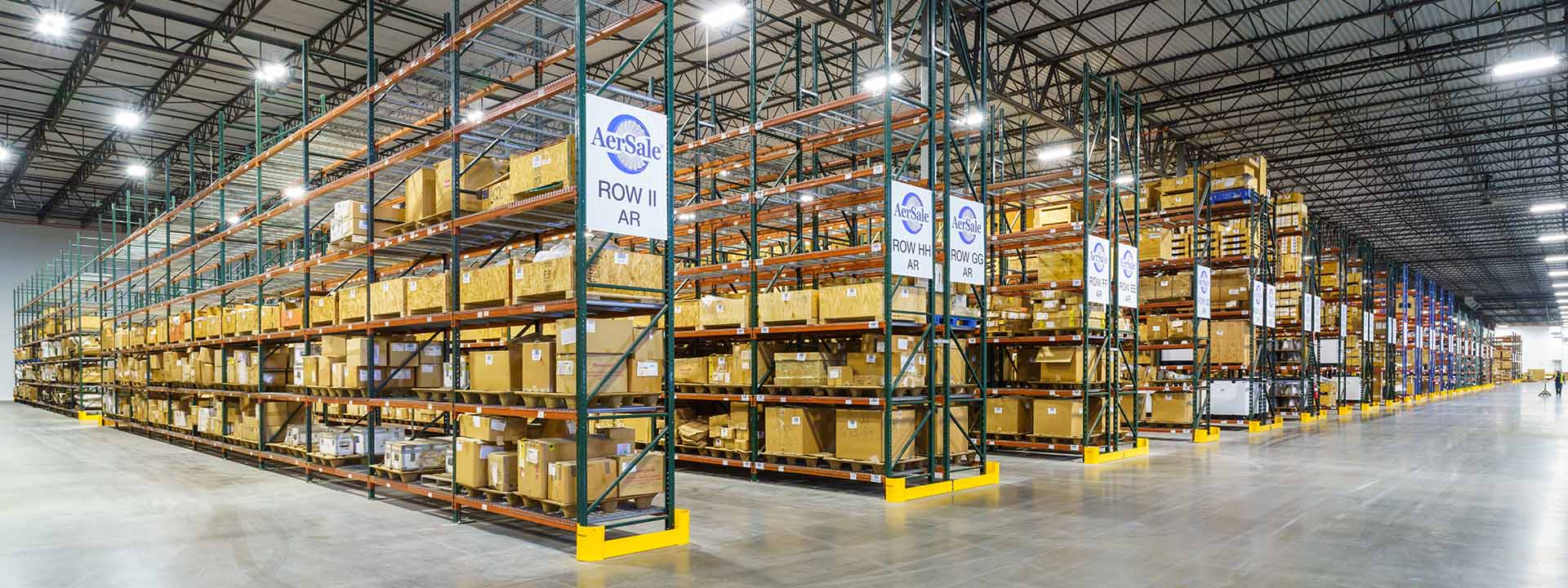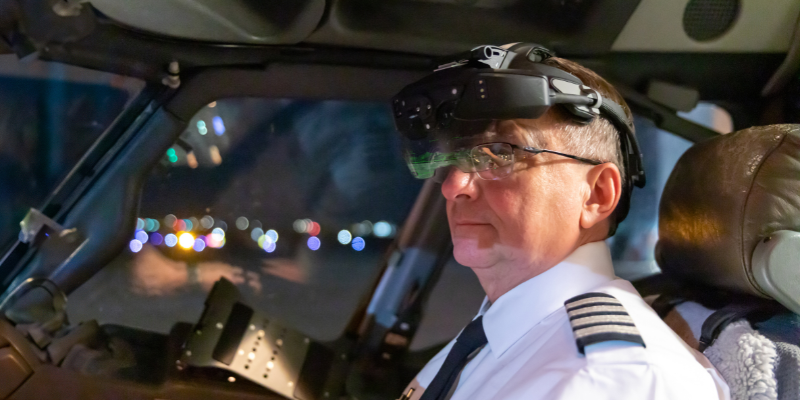The global aviation industry’s worldwide fleet is slated to expand by 42% in the next 10 years, according to a fleet and maintenance forecast. The aircraft MRO market that will support this fleet is also expected to grow, with spending expected to rise to $116 billion by 2029. The majority of the industry’s fleet expansion will be driven by narrowbody jets such as the Boeing 737 MAX and the Airbus A320neo. These narrowbody aircraft will comprise 66% of the global fleet by 2029, as more airlines replace their regional jets and turboprops.
As new-generation aircraft enter service and replace older aircraft, commercial airlines face increasingly expensive and complex service and repair for the technology and life-limited parts on newer aircraft. In the increasingly technology-driven commercial aviation space, choosing an integrated aircraft MRO service provider with extensive technological expertise is more important than ever.
Trends in Sales and Fleet Management
The annual average growth rate for the aircraft MRO market will hit an impressive 3.5% over the decade. The bulk of this growth will take place between 2024 and 2029, when spending will grow to $19 billion, compared with $15 billion between 2019 and the start of 2024. Amid this global fleet growth, the average age of aircraft will vary based on region. North America, Western Europe, Latin America, and Africa will see that age decrease. Meanwhile, China, India, Eastern Europe, and the Asia Pacific will see that average age increase as aircraft stay in service longer to meet growing demand.
Whether buying/leasing aircraft or keeping existing ones longer, airlines will need the resources provided by lessors and MROs to acquire and maintain their fleets. Once aircraft in those fleets reach the end of their leases, lessors will find new homes for them, and MROs will keep them in top shape for the next customers. Aircraft lessors play a key role in sales and MRO, helping their customers manage portfolio risk and maintain strong credit. It’s no secret that newer, more technologically advanced aircraft yield better lease rates, stronger residual values, and potentially more liquidity.
Although many large aircraft lessors possess the in-house expertise—including technical, credit, and legal capabilities—to manage aircraft from cradle-to-grave, they often choose not to own the aircraft for 25+ years. Why? Because owning older aircraft can conflict with the young weighted average age that many lessors seek to maintain. It also ties up capital that could otherwise be used for further growth. On the other side of the equation are airlines that decide to keep older aircraft in their fleets, which require the services of MROs to manage everything from simple line maintenance to D checks.
Technology-Driven Aircraft MRO
As the commercial aviation industry embraces innovation at a rapid pace, future-minded aircraft MROs are leveraging digitization to transform fleet management. The Industrial Internet of Things (IIoT) is often cited as a driver of consumer experience, and many airlines are adopting innovation to satisfy the needs of modern travelers. But the benefits of technology in the commercial aviation industry extend far beyond tracking luggage and helping customers navigate airports via eBeacons.
As fleet maintenance needs continue to evolve, the industry is seeing a shift toward MROs that offer more value-added technology services. In addition to expanding their expertise in new aircraft capabilities, aircraft MROs are exploring the value of technology to streamline processes and reduce costs. Think: connected fleet tools that monitor and analyze multiple aircraft, real-time parts and maintenance tracking using RFID, barcodes and near-field communications, and automated parts handling. Aircraft MROs are actively expanding with mobility platforms that give engineers and operators a more streamlined way to manage orders and inventories. As the FAA regulation landscape requires new levels of compliance, aircraft MROs like AerSale® are also leveraging innovative technology to keep commercial airlines in the air and in compliance.
Through a mix of proprietary technology, automation, and digitized processes, MROs are delivering new levels of value for the commercial aviation industry and positioning themselves as integrated solutions providers.
Technology for FAA Regulations
At AerSale, we’re using proprietary technology to anticipate—and satisfy—the needs of our commercial aviation customers as they navigate the FAA regulatory landscape. It’s all part of our commitment to offering integrated solutions that maximize value for our customers at every stage of the aircraft life cycle.
To help operators of Airbus 319, 320, 321 and Boeing 767 and 737 aircraft comply with the Fuel Tank Flammability Reduction (FTFR) Rule, AerSale leveraged our extensive MRO expertise to develop AerSafe®. Our proprietary technology, AerSafe limits the amount of available oxygen that can ignite fuel vapors and prevents sparks from initiating an explosion. Our experts have designed, and rigorously tested, AerSafe to the exact tolerances required for the cavity of the Airbus 319, 320, and 321 series and Boeing 767, 737 NG, and 737 Classic series center fuel tank. With AerSafe, operators achieve a virtually maintenance-free, cost-effective solution for FTFR compliance.
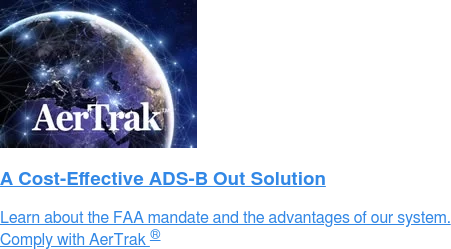 Our technologists and aviation maintenance experts developed AerTrak® to provide our customers with a cost-effective Automatic Dependent Surveillance-Broadcast (ADS-B) solution ahead of the FAA’s 2020 mandate. FAA-approved to comply with ADS-B Out for Boeing 737 NG and ADS-B Out for Boeing 757-200 series aircraft, AerTrak leverages proprietary technology to help operators take this key step toward their Next Generation Air Transportation System.
Our technologists and aviation maintenance experts developed AerTrak® to provide our customers with a cost-effective Automatic Dependent Surveillance-Broadcast (ADS-B) solution ahead of the FAA’s 2020 mandate. FAA-approved to comply with ADS-B Out for Boeing 737 NG and ADS-B Out for Boeing 757-200 series aircraft, AerTrak leverages proprietary technology to help operators take this key step toward their Next Generation Air Transportation System.
As the global fleet continues to grow and more advanced aircraft enter the airspace, commercial airlines aren’t the only industry player embracing technology. Through proprietary solutions and technological expertise, AerSale is maximizing value for commercial aviation customers across the aircraft life cycle.
About AerSale
A global aviation leader celebrating its 10-year anniversary, AerSale specializes in the sale, lease, and exchange of used aircraft, engines, and components, in addition to providing a broad range of maintenance, repair, and overhaul (MRO) services and engineering services for commercial aircraft and components. AerSale also offers asset management services to owners of end-of-life aircraft and engine portfolios. Headquartered in Coral Gables, Florida, AerSale maintains offices and operations in the United States, Europe, and Asia. For more information on how AerSale can exceed your MRO requirements and keep your aviation assets functional and profitable from first flight to final flight, visit www.aersale.com or contact us.


